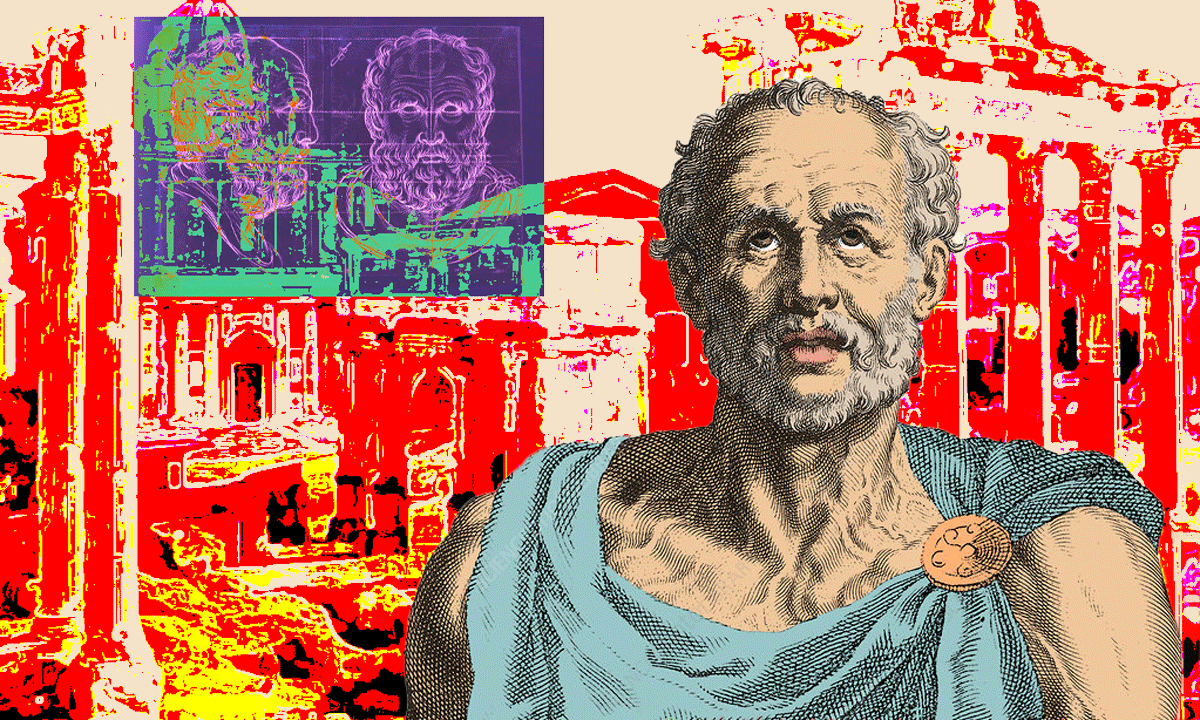
The sages of antiquity knew very few, we know even less.
Reflection and action are the two paths of European philosophy. Better than reflection, the philosophy of action has produced masters, guides. Being a philosopher is more than just a way of being, better than a lifestyle. It’s a lonely path. To be free and become what I am, I had to leave the rails of reason. I chose action.
Heraclitus. Nietzsche. Castaneda.
The salaried academic remains imprisoned in the social gang. He thinks only of thought. He loves only thought. Does he live only life? In your opinion? For the philosopher of action, everything changes, everything moves. Only impermanence remains.
Neither Space nor Time exists. They are illusions admitted by the grossity of our senses and the thickness of our judgment.
Being a philosopher is not academic. No philo teacher will be a philosopher. True philosophers do not study thought. They teach it even less. They do not read the acrobatics of logic, the immobile of reflection. A true philosopher does not think. His head is empty.
I don’t think, I’m too intelligent for that.
The thought paralyzes and leads to forgetting the body. Those I like to read again are people of action. Destins out of the norm. My favorites? Heraclitus. Nietzsche. Castaneda.
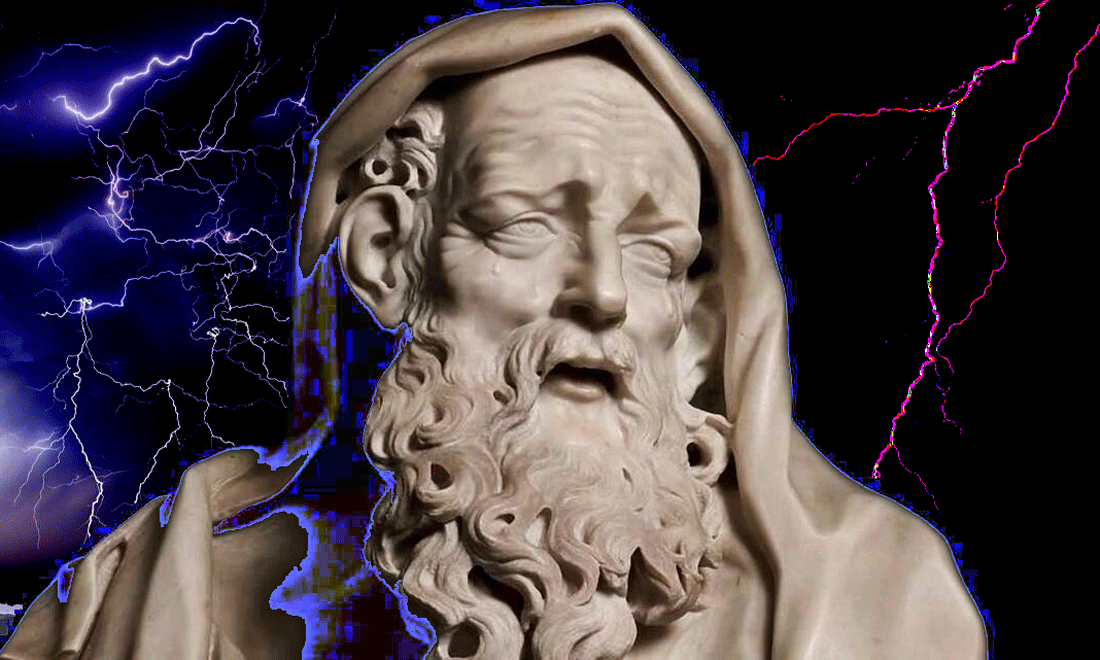
Presocratic Heraclitus
The pre-Socratic are at the origins of philosophy, before Socrates (470-399 BC) and Plato his disciple. Most humans sleep soundly. Heraclitus was a great awakener. He reveals, corrects, resources and repairs. His thought is action. She urges us to act. He speaks truthfully, he shocks with his revelations of forgotten knowledge. Heraclitus is a superman who remembers the gods before.
Of him we have only incomplete fragments. He is nicknamed Heraclitus the Obscure, yet his word enlightens those who seek the Way. It is a pleasure to read.
“This word, which is true, is never understood by men, whether they have heard it before or hear it for the first time. Although all things are done according to this word, they seem to have no experience of the words and facts as I set them forth, describing their nature and saying how they are. Men do not notice what they are doing when awake, nor remember what they have done in their sleep.” (Heraclitus)
True sages are those who give what they have, without malice and without secrecy.
The Birth of Tragedy
The ancient tragedy is the best philosophy in the world, because it addresses the total being, and not only its reason. Mechanical logic, you only animate clones and bots. Reason there is no human. There never was. Madness, my path that has heart. Around me, the crazy thought gains ground. We already see the non-thinking coming.
Reason to the con. The birth of philosophy is the death of tragic catharsis. An entire assembly on the open-air theatre stands could spend hours, days and nights before the outcome cuts the old knots that kill the heart and tie the guts.
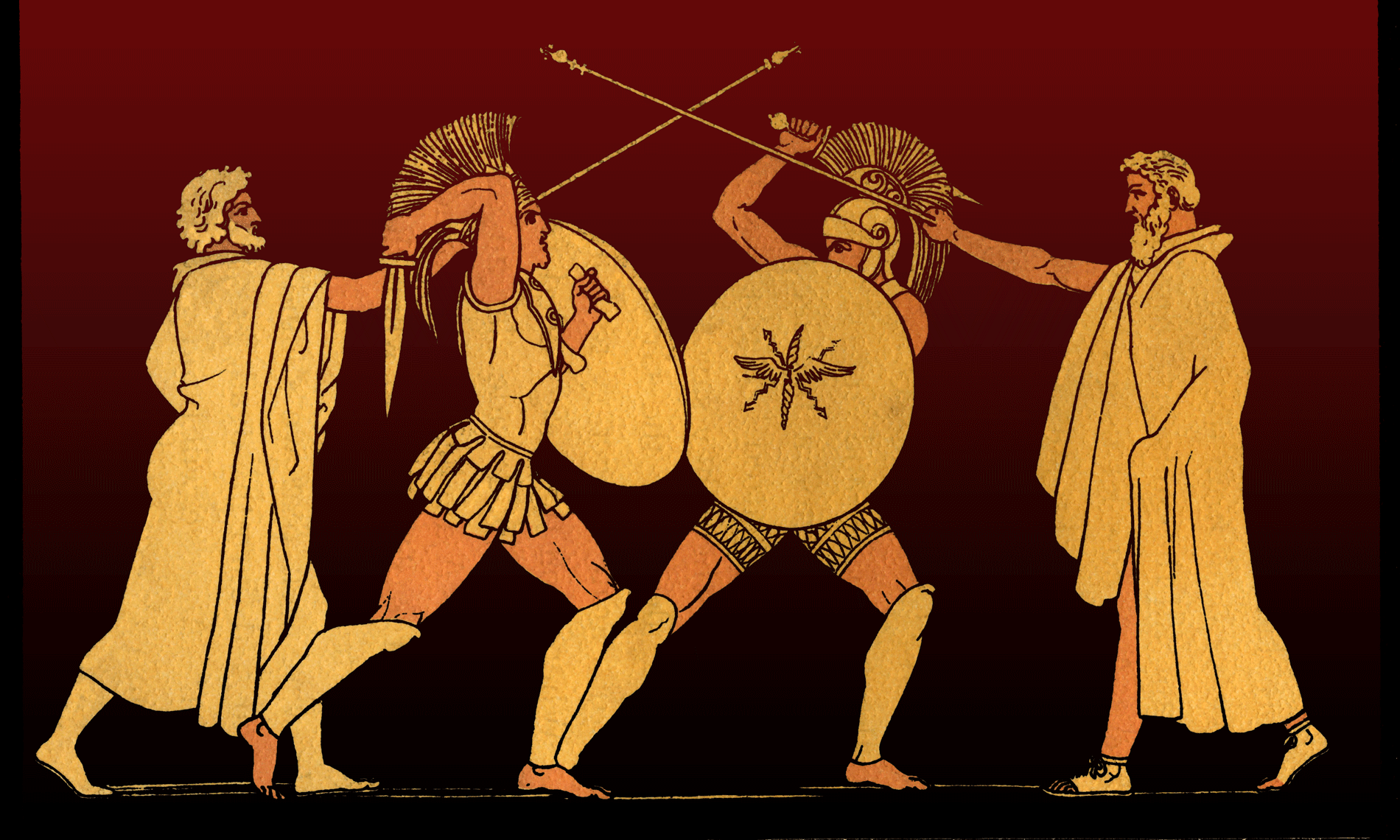
Catharsis
Catharsis is this liberation. Great collective cleansing of the unfathomable depths of being. No one succeeds in it through reflection. Mirror! To reflect is to send back the light that does not penetrate the one who reflects. Clearing the thoughts is the key to meditation, which alone allows us to enter into ourselves. Reflection projects us to the surface of ourselves, like logic, math and other so-called exact sciences. Life makes fun of it. They are all false. The dead sciences have become beliefs, sects, superstitions, religions.
Oh Lord have mercy! Free us from all of the religions!
The ancient sage, the pre-socratic philosopher, wanders through time like an honest peripatetician. If he stands still, time catches up with him. The decline invades it. Torn, dismembered, devoured by time like a stoic masochist, he perishes, pathetic.
Only ancient theatre allows catharsis. Animistic rituals pursued the same goal, the only worthy goal of a waking being. But animism is fought by the strong in theme as a superstition.
Only religions are superstitions. A believer is like the coward who crosses his fingers behind his back thinking to scare away his own death.
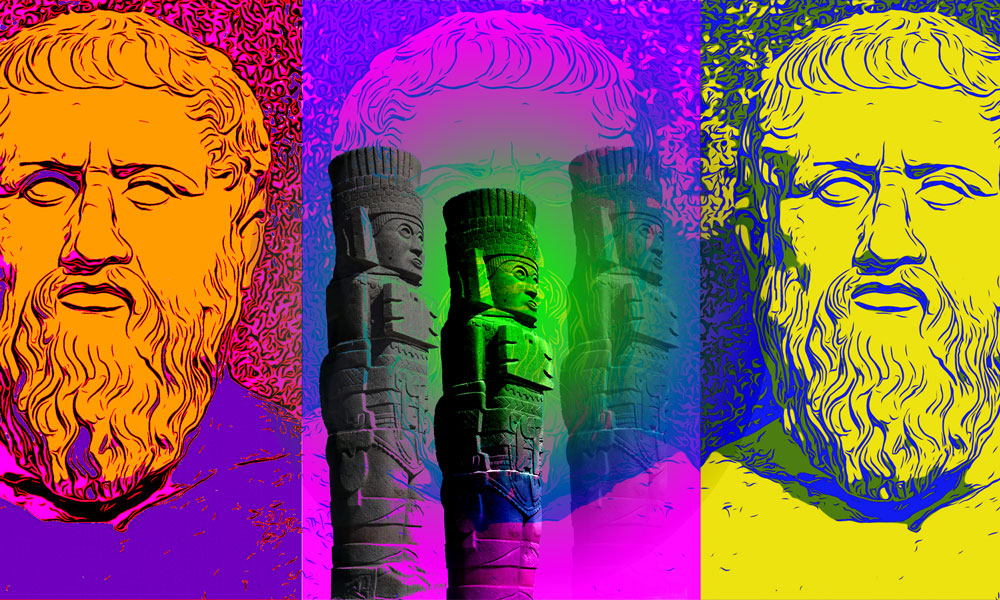
Plato’s Atlantis
Atlantis is a cursed subject. Most historians, protohistorians or archaeologists are obstinately refusing to examine the question other than for laughs. And yet! The mythologist that I am, always in love with tales and legends, does not have this kind of prevention.
The Greek philosopher Plato is our first source of information on Atlantis. Here is a summary of what he says in the Timaeus: “The Atlantic Ocean was navigable at that time; for, facing the strait you Greeks call “the columns of Heracles”Or columns of Hercules stretched an island larger than the North Libya and Asia combined; from there it was possible for travelers to reach the other islands, then from these islands the whole continent which, on the other side, surrounds the ocean. There is a true ocean, and the land around it can be called continent in the full sense of the word.”
Does it not sound like an island close to America? Has this continent been known from all time? “On this island of Atlantis there was a confederation of kings, an enormous and wonderful power, which had importance on the island as well as on many other islands, and in certain parts of the continent; moreover, from the lands located inside the strait, They ruled over Libya as far as Egypt, and over Europe as far as Tuscany”. (read more)
The Doors of Perception
Plato studied in Egypt and the druidic universities of Celtic Gaul. He listened to the lessons about the gods before, Atlantis, Hyperborea. But he did not understand much. The Greek philosopher, who failed to open the doors of perception within himself, developed a meaningless mental system. Thus was born the philosophy of reflection.
There are things known and there are things unknown, and in between are the Doors of Perception.
Plato distinguishes two worlds, the sensible world in which we live, and the world of pure ideas, fixed for eternity in a perfect sky, immutable and inaccessible to humans. He calls the latter the heaven of intelligibility. It’s pure gibberish.
For Plato, earthly life turns the man’s gaze away from the sky of ideas where every piece of the world, every event, every feeling finds its immutable principle. GOG!going on gibberish
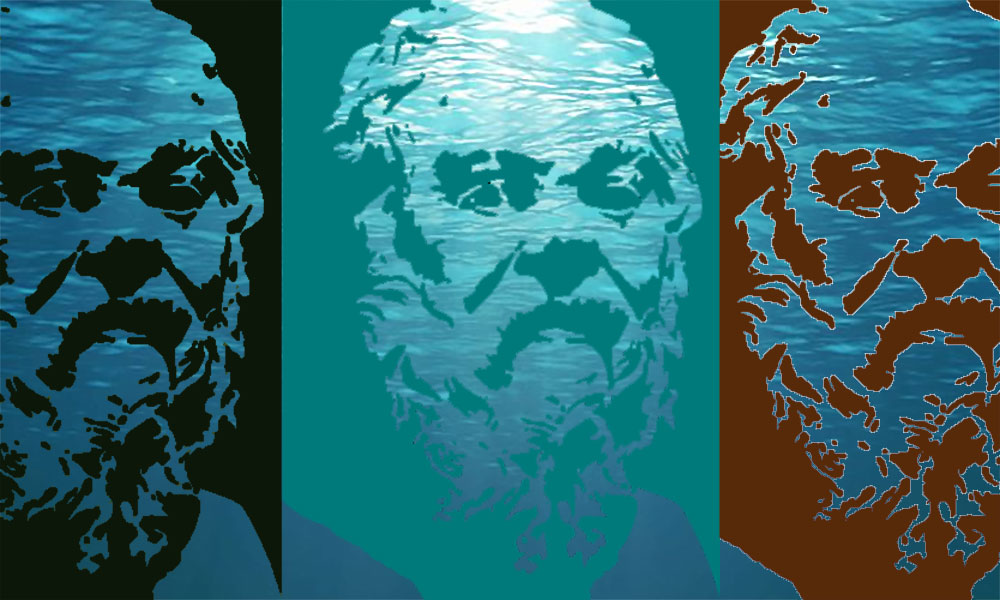
Another Planet
Having failed to understand the greatness of the human past, failing to imagine the technological wonders deployed by those he called the gods, Plato was mistaken, all human wisdom followed his course, and world history was cut off from the best. Human existence has lost its meaning.
When Plato distinguishes between two worlds, he is right. There is our world, this planet earth. But there is also the world of the gods, which is not in a cave but on another planet, Nibiru or Hyperborea. It is a pity that he was not as well-informed about our true past as the ancient druids were.
Memories of Ur in Alcor
On the planet of the gods, there were genetic banks for plants, animals and all living beings. This is what the druids tried to pass on to young Plato. The world of pure ideas is a genetic bank. With the help of these genes, Enki or Prometheus, the divine geneticists, created all the life forms we know.
Or rather they started, and the universal laws of evolution implemented in DNA made the work go on. It was nevertheless a colossal work. Enki and Prometheus were not alone. On board the mother ship Hyperborea lived tens of thousands of gods, assisted by millions of angels, their specialized labor.
When Plato thinks that behind every real being there is a divine model which he takes for a pure and perfect idea, he tries to remember this history of genetic bank of the gods before. He wades, the unfortunate one, he pedals, but can we blame him? The state of knowledge at his time made it impossible to understand genetics. This is no longer the case today. (read more)
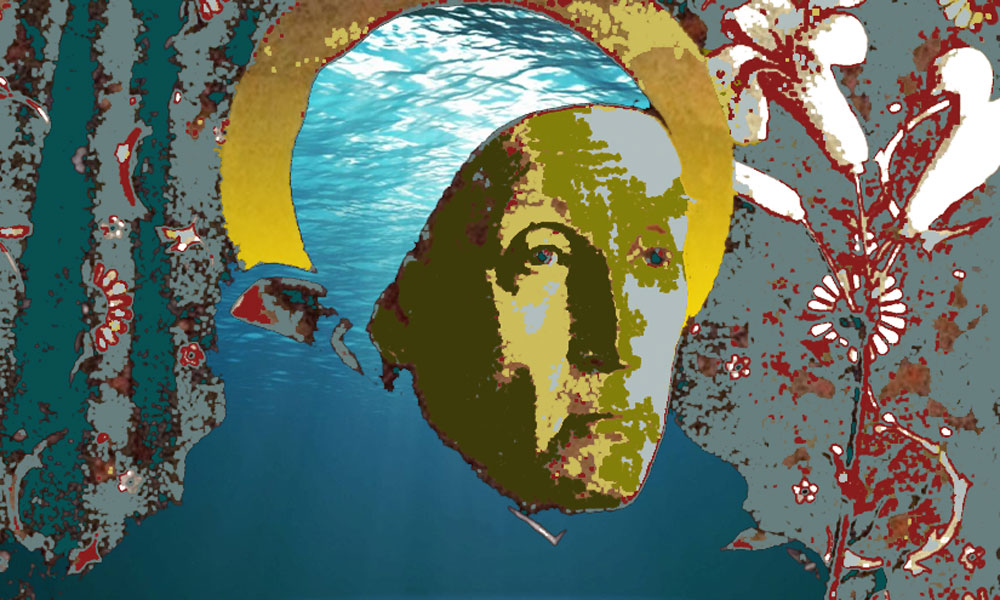
The Great Eckhart
Master Eckhart is a 14th century German theologian and philosopher. He embodies the Rhenish mysticism. This Dominican was the first to preach in a common language that all could understand. Without delay before such a sacrilege, he was deemed heretical by the Catholic hierarchy which reserves the right to modify the doctrine. And who does it in Latin, so that most do not understand anything.
Master Eckhart was condemned for his proposals on divine sonship, theosis and deformation. And yet he believes so strongly in god that in my opinion he deserves no anathema. Still a false atheist: the master makes the big gap sorry!
“The time of the divine is not that of men. No ancient sage, however shrewd he was, could have conceived a bridge between time and eternity. There is one yet, the love of God for his creatures. His name is Christos.” (sermon 12)
Time runs much slower when you live ten thousand years. The gods are old with their white beards. Thunder speaks through their hundred mouths. Almighty, God distributes his omnipotence to men, his beloved children, his christs that he loves.
“Man must surrender to God in all that he does, never pursuing any end of his own, neither in small things nor in great ones. Man must remain free and empty of all images and multiplicity, always standing above things” (sermon 52).
So that man may hope to become god in turn. For Master Eckhart, divine sonship implies that the children of god can divinise themselves, rescued in this task by divine love. This is what distortion means: to take a divine form.
“The Father begets his Son in eternity, but also in the noblest soul ever born. Whatever God does, he does in the soul.” (sermon 101)
It is in the soul and only in it that the children of the Most High acquire elevation. It is through the power of Love that they become Love in turn.
“The eye by which I see God is the same eye by which God sees me. My eye and the eye of God is an eye, a vision, a knowledge, a love.” (sermon 32)
Eckhart continues his big gap. He sees himself God sees himself. He sees God as God sees him. He knows himself as a child of God, he sees himself perfectible to infinity, he desires God himself. This theory of divine filiation was considered heretical by the purple robes and the red robes.
If we push it to its natural term, it is to say, as I do, that:
Between the gods and men, there is no difference in nature. Just a difference in degree.

Daring Spinoza
The major work of Baruch Spinoza (1632-1677) is Ethics. The philosopher is 23 when he is struck by a herem – a term of Jewish liturgy that can be translated as excommunication, banishment and anathema – which banishes and curses him for heresy in a particularly violent and, rarely, definitive manner.
The real mystery of religion: there are people to practice it.
Such a disavowal would have overwhelmed more timid than him. The Herem is a gravest act. But this act, however scathing it may be, will not stop him. prevented this major philosopher from continuing to philosophize. “Every philosopher has two philosophies, his own and that of Spinoza,” wrote Henri Bergson.
The God of Spinoza, object of the Ethics, has nothing to do with that of the Judeo-Christian religion, transcendent principle in the world. God is the absolute being, composed of an infinity of attributes and a single Substance. God refers to the whole of reality or Nature, understood as the unity of things. Deus sive Natura = God or Nature. (source)
Spinoza, like Eckhart, sees God as I do: an accessible model. Same conclusion:
There is no difference in nature between gods and men. Just a difference in degree.
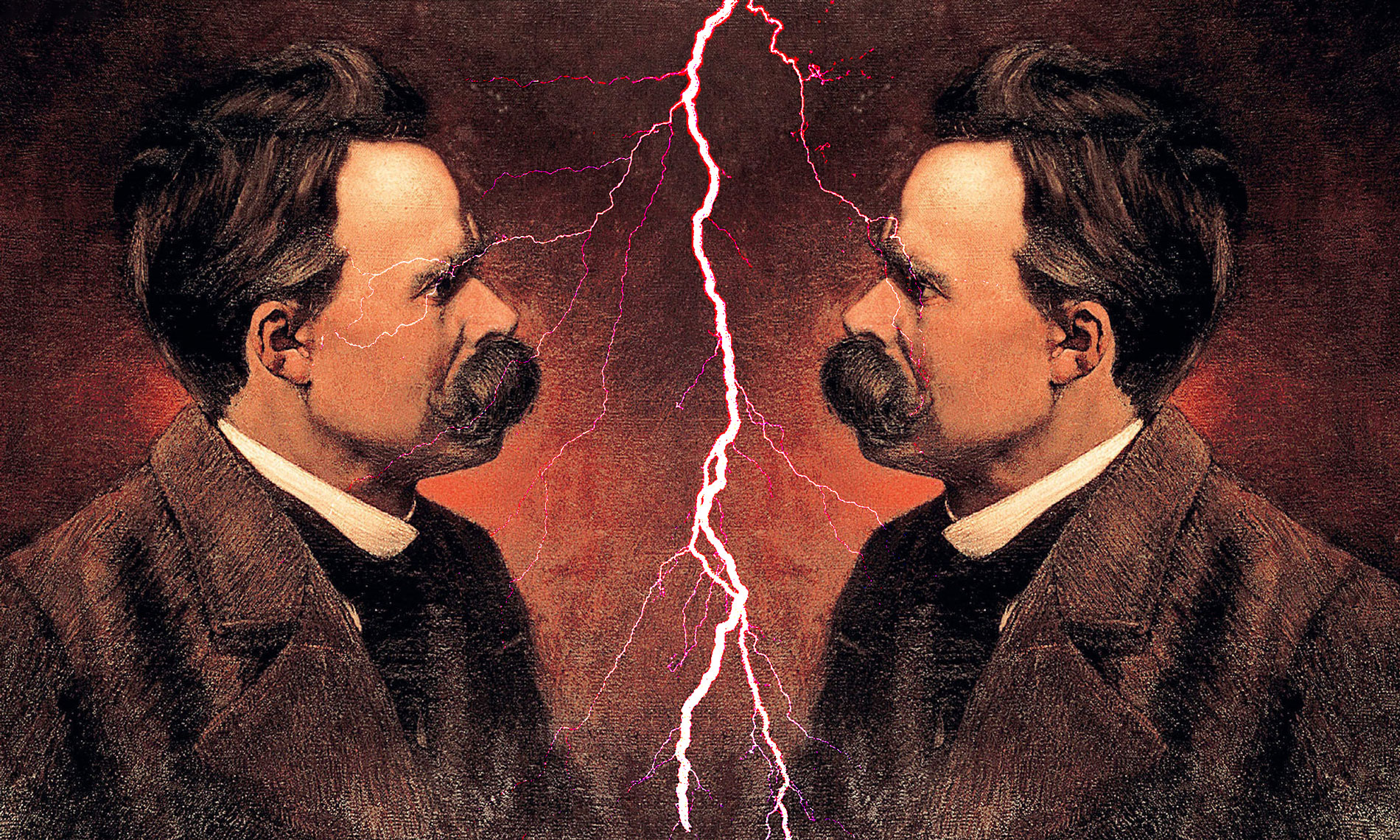
Superman Nietzsche
The truth is elsewhere. Not God but the gods. Not the sole creator of everything that is, but a multitude of manufacturers, scientists, technicians, geneticists: the terraformers, the gods of before.
What neither Master Eckhart nor Spinoza dared do, old Plato did every day. But time passes. Everything is degraded, say the physicists. Wisdom too. What seemed simple to the ancient sages becomes heresy for Christian doctrine. Or Jewish. Or Muslim.
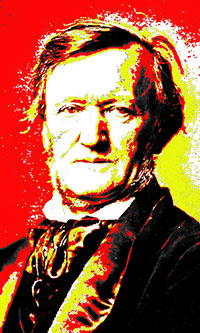 And Nietzsche, however revolted he was, also falls into this panel. He loved the ancient tragedy that he sees as the foundation of modern cultures, which I follow in his footsteps. But instead of returning to the ancient wisdom, instead of admitting multiple gods, closer to the superman than to the one God, he throws the baby with the bath water. Not of god. Or rather, God is man.
And Nietzsche, however revolted he was, also falls into this panel. He loved the ancient tragedy that he sees as the foundation of modern cultures, which I follow in his footsteps. But instead of returning to the ancient wisdom, instead of admitting multiple gods, closer to the superman than to the one God, he throws the baby with the bath water. Not of god. Or rather, God is man.
Human is Free
The God of the Bible and of other religions claims himself to be the author of all that is, including man. For Nietzsche and his contemporaries, these premises are unacceptable. Man is sufficient to himself.
To recognize that a God has created us, that he has plans for us, that we are necessary cogs in a whole which is beyond us – this is what Nietzsche cannot admit. We are free: whether God loves us or not, he can’t assign us any purpose.
Nietzsche makes of man an idea too high to subordinate his soul to anyone, God or the devil. A Wagnerian impulse to which responds his passion for excess, the hubris of the ancient Greeks. (read more)
Human, too human
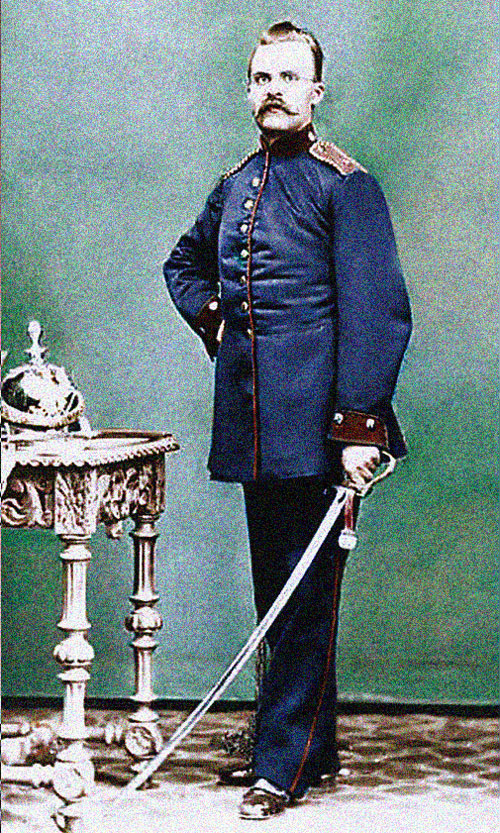 Living lucidly is for Nietzsche to face the tragic, the dissolution of the subject in fate. In this confrontation, reflection does not help us. Only art can give us real support. Far from the aimable and inconsequential pastime, art is the metaphysical activity par excellence.
Living lucidly is for Nietzsche to face the tragic, the dissolution of the subject in fate. In this confrontation, reflection does not help us. Only art can give us real support. Far from the aimable and inconsequential pastime, art is the metaphysical activity par excellence.
Through art, the tragic dimension of all existence is revealed. Miguel de Unamuno echoes him in his major work, El sentimiento tragico de la vida; The tragic feeling of life.
Nietzsche is not at all contradictory, he cultivates difference as indifference. He refuses the idea that an almighty being could have created us to entertain himself from us. For God is not good, open your eyes, see his work.
Life is a long train of trials, sufferings, sorrows and disappointments. I was fortunate, because I am resolutely optimistic. But if I were to list my trials, sufferings, sorrows and disappointments you would say that is what he calls luck? This guy is a fool!
Act as if
Yes, I’m crazy, crazy, lost in a world that I don’t like. I act like I do. As if everything was fine, as if my heart were intact, as if I never had a toothache, as if old age spared me…
The naive advice of life coaches: if you want to change, do as the person you want to become. Singe it, imitate it in every single gesture, say only the words it might say and sooner or later you will be that person.
And it will be a good thing for you! The coach is you. Stay yourself, there is no other way to grow. And pretend that you don’t care about the rest.
European Thinking
- Meister Eckhart
- Oronce Finé
- The Lying History
- Rene Descartes
- The Continuing Creation
- Volontary Servitude
- Brain and Thought
- Baruch Spinoza
- Free Will
- Courtly Love
- Pascal’s Wager
- Immanuel Kant
- Kant and Pure Reason
- Hegel And Nothingness
- Divine Mathematics
- Science, Ego, Magic
- Magical Thinking And Daily Magic
- Karl Marx and God
- Karl Marx and his Double
- What Scientific Progress?
- Matrix And Memory
- Reflection And Action
- Anarchist Nietzsche
- Prophet Nietzsche
- Superhuman Nietzsche
- The Will To Power
- Dance in chains
- Henri Bergson: Time And Duration
- Vitalism of Bergson
- Miguel de Unamuno
- Progress, Suicide Or 5G?
- Jung vs Freud
- Jung And Synchronicity
- Truely Wittgenstein
- Albert Slosman
- Marguerite Yourcenar
- Science Without Conscience
- High Time
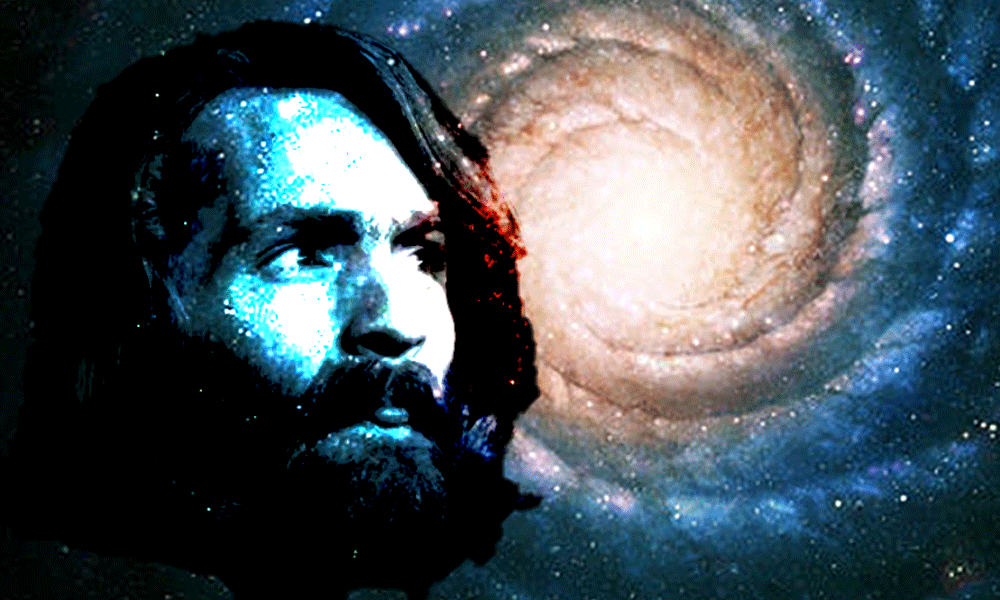
Superhuman Castaneda
The last of the action philosophers is Carlos Castaneda. The ultimate and greatest. He believes so strongly in the superman that he becomes one. Through action, he points the way forward. Step by step, he explains how to achieve it. Beware, this is not a path of perfection: the impeccable warrior is nothing like a little saint.
The Castanedian superman is a sorcerer or nagual. He has great powers. His quest for impeccability led him to the Grand Ailleurs. He is still alive, but no longer living. Do you want to grow? Reach the top of yourself? The method exists.
Sorcerers can never build a bridge to reach the people of this world. However, if people wish to do so, they must build a bridge to join the sorcerers.
- Carlos Castaneda
- Practising Castaneda
- Moving Your Assembly Point
- Will And Intention
- The Impeccable Warrior
- Non-Ordinary Reality
- A Separate Reality
- Erase Your Personal Story
- Stop The World
- Benefactor
- The Tyrant And You
- The Rule And The Nagual
- The Nagual’s Door
- The Art of Dreaming
- The Art of Seeing
- The Seven Degrees Of Seeing
- The Assemblage Point
- Sense of Timing
- Knowledge And Duty
- How I Feel
- The Guardian For Castaneda
- Emotional discoveries
- The Four Enemies Of The Warrior
- Warrior With No Importance
- The Warrior’s Mask
- Self Power
- The Second Ring Of Power
- The Path With A Heart
- Sorcerer With A Heart
- The Dressing Of Perceptions
- Human Inventory
- The Do-Not-Do to Write
- Places of consciousness
- Here and Here
- The Cubic Centimeter of Luck
- Little Tyrants
- The Conspiracy Of Good Thinking
- Self-Contemplation
- Ancient Seers
- Your Death For Advisor
- Wizard Options
- The Human Mold
- The After-Life Of Sorcerers
- The Eagle’s Gift
- Controlled Madness
- The Place Without Mercy
- The Art Of Stalking



